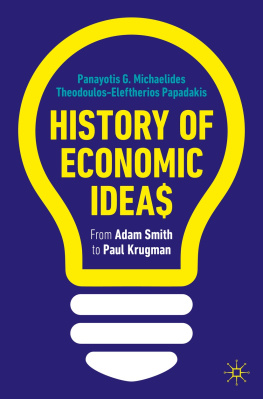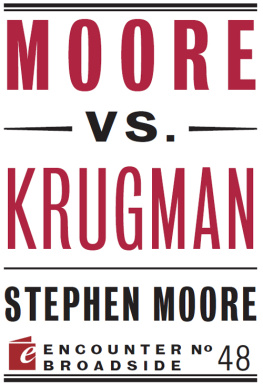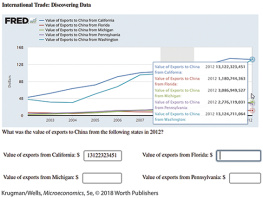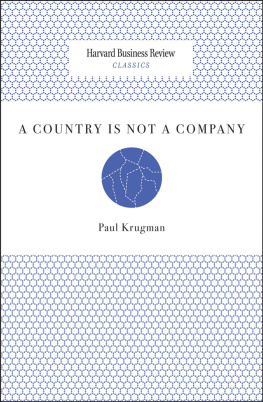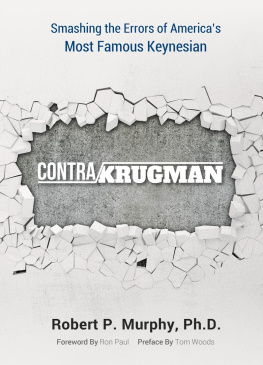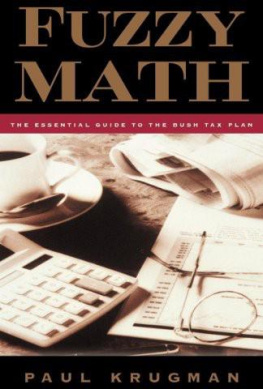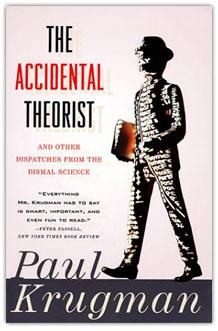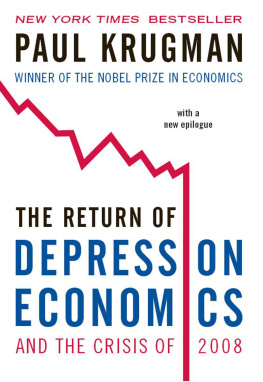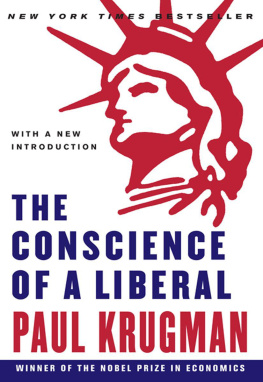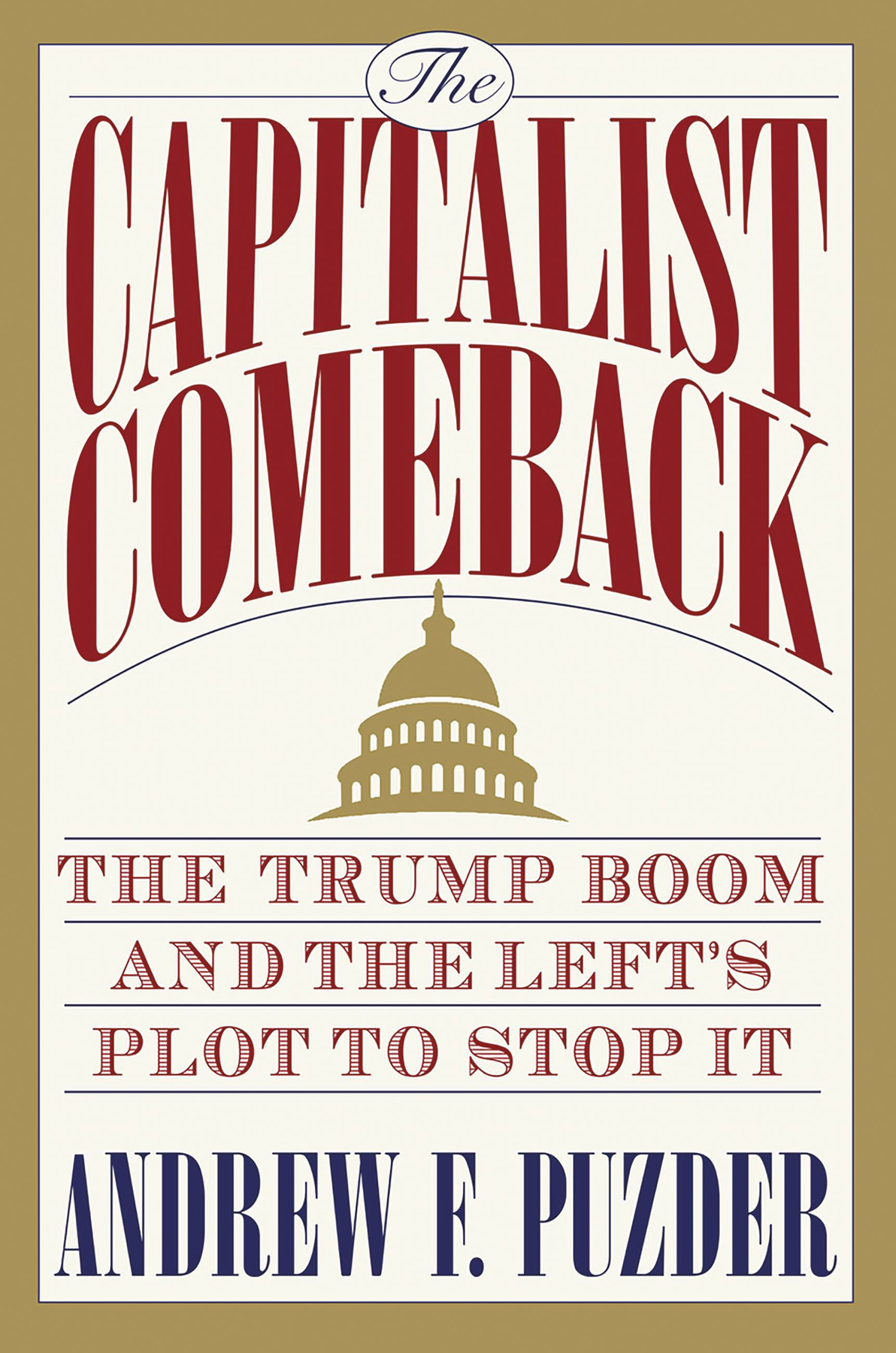Copyright 2018 by Andrew F. Puzder
Cover copyright 2018 by Hachette Book Group, Inc.
Hachette Book Group supports the right to free expression and the value of copyright. The purpose of copyright is to encourage writers and artists to produce the creative works that enrich our culture.
The scanning, uploading, and distribution of this book without permission is a theft of the authors intellectual property. If you would like permission to use material from the book (other than for review purposes), please contact permissions@hbgusa.com. Thank you for your support of the authors rights.
Center Street is a division of Hachette Book Group, Inc. The Center Street name and logo are trademarks of Hachette Book Group, Inc.
The publisher is not responsible for websites (or their content) that are not owned by the publisher.
The Hachette Speakers Bureau provides a wide range of authors for speaking events. To find out more, go to www.HachetteSpeakersBureau.com or call (866) 376-6591.
Library of Congress Cataloging-in-Publication Data has been applied for.
Carl N. Karcher
19172008
A lie gets halfway around the world before the truth has a chance to get its pants on.
ATTRIBUTED TO WINSTON CHURCHILL
February 15, 2017
T he vice president was calling.
I looked down at my phones display as the call came through and hesitated a moment before answering. This, I knew, could very well mean the end of a short but already arduous journey. It could also mean that journey was about to take a brand-new turn. The final answer was waiting for me on the other end of the line.
Just over two months before, Donald J. Trump, then president-elect of the United States, had asked me to serve as the twenty-seventh secretary of labor. He had a definite plan in mind in appointing me. For the first time since Ronald Reagan assembled his initial cabinet, an incoming president had chosen someone who had been both a laborer and a successful business executive to head the department that looks out for American workers.
I was very pleased at the prospect of serving. As someone who began as a workerwho worked his way through school while raising a familyI knew what it was like to live paycheck to paycheck, juggling bills and sometimes coming up short at the end of the month. As a business executive, I knew how government regulations designed to help workers can often have the perverse effect of hurting them, because they raise the cost of employment and make it harder, in the real world of business competition, for companies to hire new employees.
I had been writing and speaking about those issues for years, which is why I was nominated. I really believed I could reform the Labor Department so that America could have both strong worker protections and a robust and growing job market, where wages and benefits go up because companies need and want employees and must compete against one another for labor.
Of course, I knew that such ideas were anathema to many on the Left, particularly the current group of Progressive politicians who had gained ascendency in the Democratic Party in recent years. I knew they would fight my nomination, and given the divisiveness of politics in America today, I knew that the fight wouldnt be pretty.
I was certainly right about that.
The Lefts attack campaign, designed to defame and disparage, began almost immediately. The intent was to discourage supporters and encourage opponents. And, of course, truth was the casualty.
For a little over two months, labor unions and other left-wing groups threw every charge they could at me. The personal charges were one thing; I was a trial lawyer for many years and I have a pretty thick skin. But, I hated the impact on my family. They took personally the attacks on me, and they were not safe from old-fashioned scare tactics. Fight for $15 union shills showed up at our front door, held a rally near our home, and drove through our neighborhood with a billboard claiming I abused women. A threatening package containing white powder was sent to our home. Interestingly enough, the media chose not to report on that incident, though they reported the claims against me in minute detail.
All the while, I was focused on the whirlwind of activity that surrounds a cabinet nomination. I had no idea about the extent of the vetting process nominees undergo; it is intense, exhilarating, and good preparation for posts subject to regular congressional oversight.
I worked daily with the Trump transition team to prepare for confirmation hearings before the Senate Health, Education, Labor and Pensions Committeeknown in Washington slang as the HELP Committee. I was meeting with the individual senators on the committee as well as their top staffers, giving them a sense of my positions and getting to feel them out before I formally appeared in front of them.
And I was getting ready for the job, thinking about potential nominees for the sub-Cabinet posts, and planning how to implement the Labor Departments piece of the presidents agenda for job creation.
But by early February, the attack campaign reached such a fever pitch, and the attacks leveled against me were such a constant presence in the mainstream media, that some Republican senators were beginning to get nervous.
Betsy DeVos, the secretary of education, had only just barely been confirmed, and the press was gleefully reporting that the new Trump administration was incapable of putting together a functioning cabinet. Senators were swamped with emails and phone calls in opposition to the DeVos confirmation as well as left-wing attacks at town hall meetings. If the barrage kept up, my own party could sink my nomination before I even got the chance to make my case in a hearing.
Vice President Mike Pence had been working with Majority Leader Mitch McConnell to count the votes and see where I stood. The vice president and I trusted each other and knew we could count on each other to be straight and to the point, even if we werent saying what the other wanted to hear.
Now, the vice president was calling with the results of his final conversation with McConnell. His words would determine whether I continued to gear up to face the HELP Committee hearing or began to pack my bags for home.
I pressed Accept.
Hello, Mr. Vice President.
I first met Donald Trump in May 2016 at the home of Tom Barrack, one of Trumps longtime friends and major supporters who later served as chairman of his Presidential Inaugural Committee. Since the previous December, I had been having informal discussions on economic policy with members of Trumps economic policy team. I also had similar discussions with staffers from the Jeb Bush, Ted Cruz, Carly Fiorina, Marco Rubio, and Scott Walker campaigns. I knew personally and had spoken and met with many of the front-running candidates.


